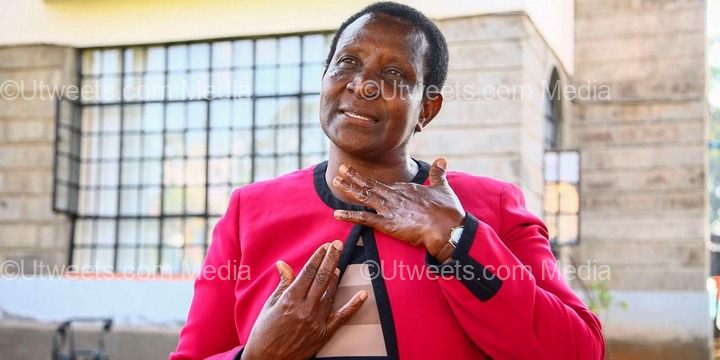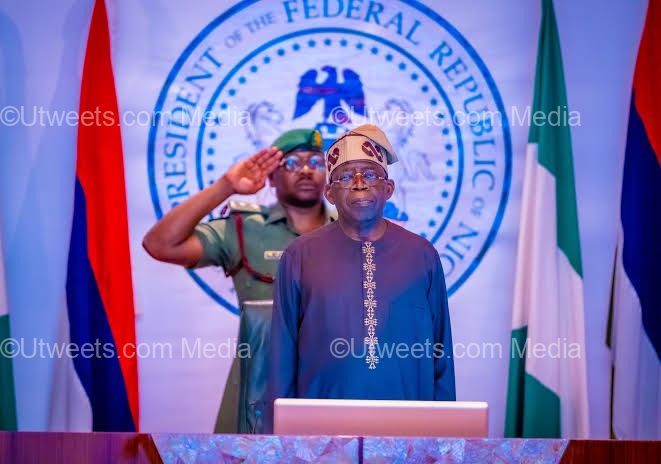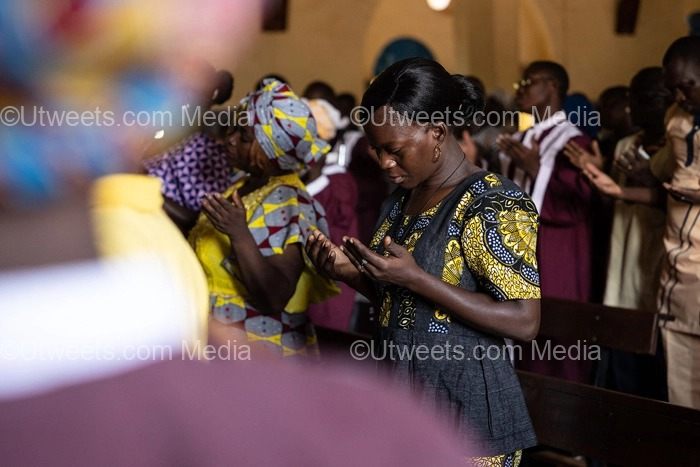Of the emotional storms that Dr Doris Nyangoge Nyokangi was dealing with while undergoing lung cancer treatment, one was the exact time that her husband would remarry. “One evening, I told my husband: ‘Baba Watoto, when I am gone, please consider getting married again so that you do not suffer from loneliness,” she writes in her book, “When Health Slips Away: A Twelve-Year Journey with Lung Cancer.” ...READ THE FULL STORY FROM SOURCE ...READ THE FULL STORY FROM SOURCE
Dr Nyokangi says as she reflected on her death, she remembered how her father had become physically and mentally drained when he was widowed in his 70s. He eventually drowned.
She did not want the same to happen to her husband, to whom she has been married since 1982 and has four children.
But she asked him not to remarry until their youngest daughter had finished university.
“I made this request because I wasn’t sure how she [my daughter] would react if my husband remarried while she was still young,” she says.
This happened in 2014.
At that time, Dr Nyokangi had undergone five cycles of chemotherapy and four sessions of radiation therapy. Her body was buckling under the weight of the medication. She had lost her appetite and had turned pale.
“I couldn’t bring myself to look in the mirror,” she recalls.
Besides asking her husband to remarry, she also wrote her own eulogy. Looking back, she believes this was the denial phase of her cancer fight. She had been diagnosed with lung cancer in October 2013. It was in stage two, discovered after a year’s tests, which could at first not pinpoint the exact cause of sharp pain in her abdomen.
After treatment, she was almost breathing a sigh of relief, but the cancer recurred in 2018. She had to face another round of chemotherapy.
Six years later, Dr Nyokangi is a woman on the mend. There is no evidence of disease in her lungs, and she is now out to educate the public on how to relate with cancer patients, learning from the ridicule she faced when her body changed due to chemotherapy.
“I stayed too long in denial, and that’s why I even wrote my eulogy because I knew I was dying. Later, when I accepted, I moved from denial. I was able to start being positive,” she talks of the need for Kenyans not to shy away from revealing that they have been diagnosed with cancer.
Father’s plight
So, what did her father’s plight teach her about the need for widowers to remarry?
“After my mum died, he was not himself. He started talking to himself, pitying himself. He got confused. You know, he drowned. It’s very painful,” says Dr Nyokangi. “He could wake up at night, go wherever.”
One night, she says, he opened the door and left. It was after a search that he was found drowned in a river.
“That’s just because my mum died. He could not cope,” says Dr Nyokangi.
Her mother had died of pancreatic cancer. The widower status of her father converted him from a healthy man singing in a choir to a man living in his own world.
“I support men remarrying after the death of their wives. This is because it can be extremely difficult for them to cope with loneliness after losing their spouses,” Dr Nyokangi writes in her book.
Mandela’s granddaughter
Dr Nyokangi, an educationist, has a reservoir of life stories. They range from the years she lived in South Africa and the UK, how she served as a lecturer at Egerton University from 2015 to 2023, and her time as the Chief Officer for Education in the Kisii County Government from 2017 to 2022 (during which she took a leave from her lecturer job) to her family and life, in general.
In the book, Dr Nyokangi explains the place of support groups and the encouragement that one gets by interacting with other cancer warriors.
As she battled cancer in South Africa, she got a surprise visit from Zoleka Mandela, a granddaughter of the iconic Nelson Mandela, who was battling breast cancer and who authored the book “When Hope Whispers.”
Zoleka was brought by Dr Nyokangi’s friends from her church.
“I have read Zoleka’s book multiple times, and each time I do, I find encouragement in her experience of enduring 16 chemotherapy cycles. The book became my trusted source of comfort during challenging times,” she writes.
How it started
Dr Nyokangi, who has a Master’s degree from the University College London (gender, education, and development studies), and a PhD from the University of South Africa (inclusive education), says a cancer diagnosis can devastate a family in terms of resources and change a person’s outlook.
Her cancer symptoms, she says, presented in mid-2012 when she travelled to Kenya to attend the funeral of her sister, Yucabeth.
“The morning after her burial, I woke up feeling fine, had breakfast, and decided to pay a visit to my mother-in-law at around 10am. As we chatted and shared stories, a peculiar sensation suddenly crept into my stomach,” writes Dr Nyokangi.
“It began as if a burning liquid was dripping from the right side of my chest down to my stomach and lower abdomen. The pain was intense, preventing me from remaining there or partaking in any of the meals they had graciously prepared for me,” she adds.
She took the next available flight to South Africa for treatment, where she had a medical cover.
That was the beginning of a series of tests and medications that took doctors more than a year to finally put a finger on lung cancer.
Attributed to smoking, family history, exposure to second-hand smoke, pollution or radioactive gas, lung cancer leads to the highest number of deaths due to cancer worldwide, according to the World Health Organisation.
“Hearing this news (cancer diagnosis) was physically and emotionally draining. The stories I had heard about chemotherapy only added to my fear, anxiety, and uncertainty,” Dr Nyokangi writes.
The treatment was not easy. In February 2014, for instance, she fainted during a hospital visit and had to be resuscitated and taken to a ward.
It also was not cheap. After her medical cover was depleted during her first round of treatment, her husband sold one of their properties in South Africa and disposed of some of their investments.
She returned to Kenya in late 2014 after she got a lecturer position at Egerton University’s Directorate of Gender, Women, and Development Studies. Her husband would follow her to Kenya in 2016 after taking early retirement.
Taking a bird’s-eye view of her journey, Dr Nyokangi has many highs and lows to share.
The highs include the support from her family. At some stage, she was too weak to use the washroom by herself, and she had to be helped by either her husband or daughter.
“(It) was a humbling experience that stripped me of my dignity and privacy. Every trip to the washroom served as a painful reminder of my vulnerabilities,” she writes.
She says of her husband: “Having him close was an incredible feeling for me, as he (has) been my strongest pillar.”
At one point, he took unpaid leave to attend to her. Their four children, she adds, have also made “significant sacrifices” to take care of her.
The lows include ridicule and insensitivity. She recalls a moment in a South African bank where she requested to go ahead of the queue but was rebuffed by one woman.
“I politely asked the customers in front of me if they would allow me to jump the queue. One woman started shouting at me, even after I explained my situation. She told me, ‘Since you know you’re sick, you should have come earlier.’ Even after telling her that I couldn’t wake up early because of my illness and that going to the bank was a huge struggle for me, she ignored my plea,” writes Dr Nyokangi.
And when she was working with the Kisii County government when the effects of the second bout of treatment in 2018 dented her body, she was ridiculed.
“Rumours and murmurs circulated at work that I was HIV-positive. The common narrative was mostly in Kiswahili and it went like this: ‘Inakaa huyu mama amekuja county na hii ugonjwa kubwa,” she writes.
She also faced derision for wearing her facemask long after the deadly phase of Covid-19 had passed.
But the burden is never only on the patient.
Her husband
Her husband, James Jeremiah (JJ) Nyokangi, who made an all-out effort to save his wife, told Nation Lifestyle that when his wife asked him to marry after she was gone, it stirred up a lot of emotions in him.
There was a feeling of shock “because it makes you get this feeling that she’s gone”, he says, adding that it made him pray a lot to God, being a religious man.
“But it also shows that she loves me. I think it has also increased my love for her. At that moment, she was not thinking about herself; she was thinking about my welfare. It is very humbling when a person concludes that they are going but they are still thinking about you,” says the actuary, who got a lecturing job at the University of Witwatersrand, South Africa, in 1994, with his family joining him five years later.
In 2002, when he got another job opportunity in the UK, he moved to London with the family. The Nyokangi family returned to South Africa in 2008 when he got another “exciting” opportunity.
When Lifestyle asked Dr Nyokangi’s husband about what his wife’s experience has taught him, he said the foremost lesson is the value of investing.
“I have worked in South Africa and the UK, and I reached a point where I retired early, thinking I had enough to live on. But the disease came from nowhere and made me sell a lot of my assets,” he says.
“I sold property, and I sold other investments that I had in South Africa. So, that’s one thing I can tell any young person: Invest the money you have, because you don’t know what will happen tomorrow. Any single cent you have, before you use it, invest. Because of a disease like this one, without fundraisers, it wasn’t easy. But because of that [the investments]. I managed.”
Mr Nyokangi also notes that his wife’s cancer battle has shown him the importance of a couple living harmoniously.
“When you have your partner, try to understand this person because there comes a time when it’s only you and them, without even the children. I think this thing has taught me to be more humble. I was humble before, but I have become more humble and more caring,” he says.
Talk openly
For Dr Nyokangi, she encourages those who have been diagnosed with or suspect cancer to seek immediate help.
“The decision to talk about my illness has boosted my healing process and thus positively impacted my overall health,” she adds. “I encourage cancer patients not to fear talking openly about the disease and the side effects associated with chemotherapy.”
Cancer has seen two lobes removed from her right lung. She is also taking medication for the rest of her life. Regardless, with the air of optimism in her, Dr Nyokangi is now a teacher, not in a classroom setting like she is accustomed to, but a teacher through example. She walks rather laboriously because of a bone problem arising from a fall in 2022, though she is sure-footed after going to hell and back; sure that when it comes to cancer, a problem shared is a problem halved, as the proverb says…..For More READ THE FULL STORY▶▶



